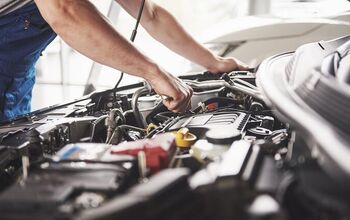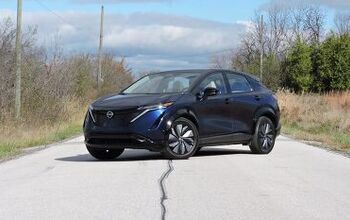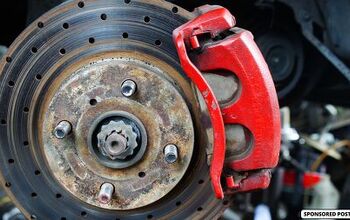Toyota President Jim Lentz Reiterates Recall is Mechanical Not Electric in House Committee Testimony

In a prepared statement before the House Committee on Energy and Commerce, Toyota President Jim Lentz reiterated Toyota’s continued stand that the issue with its many recalled Toyota models is mechanical and not electronic. Lentz commented that Toyota hired Exponent, a top engineering and scientific consulting firm, to examine its electronic throttle system to see if there were any issues. Toyota gave Exponent an unlimited budget and no electronic problem was found.
Lentz also said that it is repairing recalled vehicles at 50,000 a day and has so far fixed one million vehicles.
In response to this statement during opening remarks during the hearing, Edward Markey, D-Mass., commented that the investigation was incomplete and that just six vehicles were examined and not all of them, as he would like and deems crucial.
Interestinly, congressman Phil Gingrey pointed out that while getting the facts is important, appearing impartial is also important, commenting that the government currently owns both General Motors and Chrysler and so has a vested interest in their success and the failure of competing automakers.
—
Get more Toyota Recall News at the AutoGuide Toyota Recall News Hub
Read Jim Lentz’s complete testimony after the jump:
PREPARED TESTIMONY OF
JAMES LENTZ
PRESIDENT AND CHIEF OPERATING OFFICER
TOYOTA MOTOR SALES, U.S.A., INC.
COMMITTEE ON ENERGY AND COMMERCE
FEBRUARY 23, 2010
Chairman Waxman, Subcommittee Chairman Stupak, Ranking Members Barton and Walden,
members of the Committee, thank you for inviting me here today. My name is Jim Lentz, and I
am the President and Chief Operating Officer of Toyota Motor Sales, USA.
In my testimony, I will address Toyota’s recent recalls and the decisive steps we are taking to
restore the trust of the tens of millions of Americans who purchase and drive our vehicles. For
two generations, we have provided Americans with cars and trucks that are safe and reliable.
And we fully intend to produce even safer, high quality vehicles in the future, even as we pave
the way with the next generation hybrid and electric vehicles that our society needs.
In recent months, we have not lived up to the high standards our customers and the public
have come to expect from Toyota. Put simply, it has taken us too long to come to grips with a
rare but serious set of safety issues, despite all of our good faith efforts. The problem has also
been compounded by poor communications both within our company and with regulators and
consumers. While all auto companies have recalls and all major auto companies have
experienced complaints about unintended acceleration, Toyota’s recalls have caused concerns
among our customers.
I would like to assure the Committee, and the American people, that nothing matters more to
Toyota than the safety and reliability of the vehicles our customers drive. We are committed
not only to fixing vehicles on the road and ensuring they are safe, but to making our new
vehicles better and even more reliable through strict quality control, enhanced communication
and a redoubled focus on putting our customers first.
Our 1,500 dealers are making extraordinary efforts to complete our recalls as quickly and
conveniently as possible. Some dealers are staying open 24/7 and they are repairing vehicles at
a rate of about 50,000 a day. To date, we have repaired close to a million vehicles.
We have rigorously tested our solutions and are confident that with these repairs, Toyota
vehicles will be among the safest on the road today. Our engineers have identified two
specific, mechanical causes of unintended acceleration covered by the recalls and we are
currently addressing these through the open recalls. One involves floor mats that when loose
or improperly fitted can entrap the accelerator pedal. The other concerns accelerator pedals
that can, over time, grow “sticky” with wear. The solutions we have developed are both
effective and durable.
We are confident that no problems exist with the electronic throttle control system in our
vehicles. We have designed our electronic throttle control system with multiple fail‐safe
mechanisms to shut off or reduce engine power in the event of a system failure. We have done
extensive testing of this system and have never found a malfunction that caused unintended
acceleration.
Additionally, in December we asked Exponent, a world‐class engineering and scientific
consulting firm, to conduct a comprehensive, independent analysis of our electronic throttle
control system with an unlimited budget. Their interim report confirms that it works as
designed. Toyota will make the results of this comprehensive evaluation available to the public
when it is completed.
Why did it take so long to get to this point? With respect to pedal entrapment, Toyota
conducted investigations of customer complaints which focused too narrowly on technical
issues without taking full account of the way customers used our vehicles. And in the case of
sticking accelerator pedals, we failed to promptly analyze and respond to information emerging
from Europe and in the United States.
We acknowledge these mistakes, we apologize for them and we have learned from them. We
now understand that we must think differently when investigating complaints and
communicate faster, better and more effectively with our customers and our regulators. Our
recent voluntary recalls of certain 2010 Prius and Lexus hybrids and of certain 2010 Tacoma
trucks illustrate this new approach.
We are also going further. Our President Akio Toyoda has announced a top‐to‐bottom review
of our operations that he will lead personally, with the support of new Chief Quality Officers for
North America and our other principal regions. We will ask independent, outside experts to
evaluate the findings to make sure we meet or exceed industry standards.
We are expanding our network of technical offices in the U.S. so we can gather information
faster and respond more aggressively to incident reports.
And, we will install advanced brake override systems in all our new models – making us one of
the first full‐line manufacturers to offer this customer confidence feature as standard
equipment. Additionally, we are announcing that we will install this system on an expanded
range of vehicles – including the Tacoma, Venza and Sequoia models – that are capable of
accepting the new software. We had previously announced that the system would be installed
onto the Camry, Avalon and Lexus ES 350, IS 350 and IS 250 models. These actions underscore
that Toyota is going above and beyond making the necessary vehicle modifications and repairs
to ensure that our customers can be completely confident in the safety and reliability of the
cars and trucks they drive.
Chairman Waxman, Subcommittee Chairman Stupak, Ranking Members Barton and Walden,
members of the Committee, these are only some of the steps Toyota is taking to earn back the
confidence of Congress and the American people. Our 200,000 team members, dealership
employees and suppliers in the United States are the backbone of that effort – and I am
confident we will succeed in restoring customer trust in the quality, safety and reliability of our
vehicles.
Thank you. I look forward to your questions.

With AutoGuide from its launch, Colum previously acted as Editor-in-Chief of Modified Luxury & Exotics magazine where he became a certifiable car snob driving supercars like the Koenigsegg CCX and racing down the autobahn in anything over 500 hp. He has won numerous automotive journalism awards including the Best Video Journalism Award in 2014 and 2015 from the Automotive Journalists Association of Canada (AJAC). Colum founded Geared Content Studios, VerticalScope's in-house branded content division and works to find ways to integrate brands organically into content.
More by Colum Wood































Comments
Join the conversation